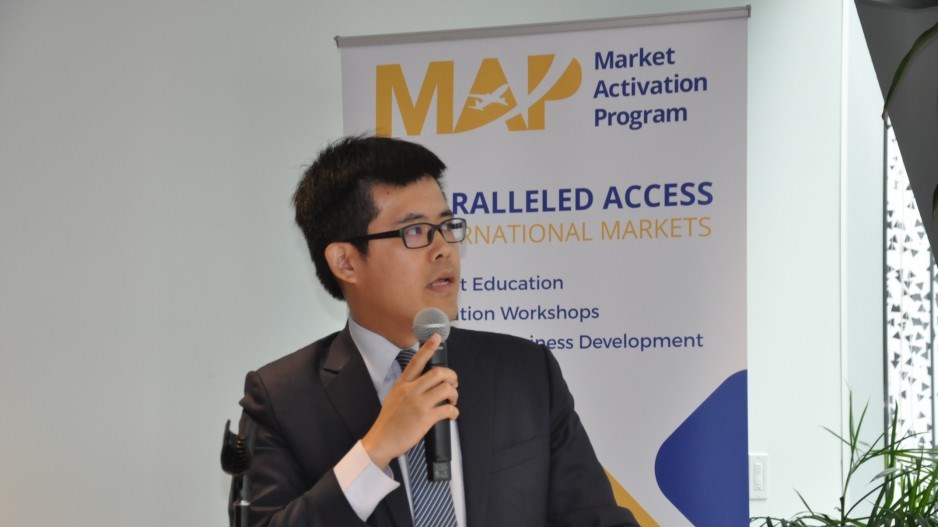Taiwan, one of three markets under the B.C. government’s new trade diversification strategy and the No. 6 destination for B.C. exports last year, poses great trade and investment opportunities for businesses in the province, according to experts at a recent Greater Vancouver Board of Trade event.
Industries that have the greatest partnership potential for companies in B.C. and Taiwain include agriculture, cleantech, hydrogen and clean energy, information and telecommunication technology and life sciences, said Raymond Zhu, senior manager within B.C.’s Ministry of Jobs, Economic Development and Innovation.
“We all know that B.C. is famous for the high quality of agri-food and seafood. Taiwan's food and drink sector has grown very fast with [the majority] of its food supply imported from the outside,” said Zhu.
“And Taiwan's meat consumption is much higher than the average of other Asian markets,” said Zhu, who also pointed out that Taiwan has a high rate of vegetarianism, making it a good market for plant-based proteins and products.
WorldAtlas data shows that Taiwan has the world's third-highest rate of vegetarianism, with 2.5 million people – 13 per cent of its population – identifying as vegetarians. The country’s imported fishery products has also grown by 30 per cent between 2017 and 2019, according to Taiwan customs data.
Zhu said commitments by both B.C. and Taiwan governments to achieve net-zero-emission status by 2050 has laid a foundation for partnerships in clean technology. Additionally, Taiwan’s commitments to phase out its nuclear power program by 2025 and to reduce oil and coal consumption have created more demand for renewable energy technologies.
“B.C. has a very talented labour force. Together with Taiwan’s high tech manufacturing expertise, we can form cooperation among these two and build for the future successes,” he said.
Taiwan’s global leadership in the production and/or export of semiconductors, electric vehicles, functional textiles and machine tools present opportunities for Canadian firms, said Brendan Hong-Yi Chu, assistant director of economic division at Taipei Economic and Cultural Office in Canada.
Taiwan Semiconductor Manufacturing Co. (NYSE:TSM) is the world’s largest chip manufacturer, and one-quarter of Tesla’s (NASDAQ:TSLA) parts and components were produced in Taiwan before the EV giant closed up operations in 2009 and moved back to California to qualify for U.S. government funding.
“If you wear brands like Lululemon (NASDAQ:LULU) and Under Armour (NYSE:UAA), their high-tech functional textiles are made or designed in Taiwan.… This is another very good cooperation model between Taiwan and Canada,” said Chu.
He added that Taiwan's high ranking worldwide in government efficiency, economic freedom and democracy, its comprehensive intellectual property protection system, its tax incentives and its transportation system allow the nation to operate efficiently across the supply chain, making it an ideal environment for global businesses.
“Just like you are using your iPhone and iMac or driving a Tesla, and wearing your jersey like an Under Armour or Lululemon, Taiwan is your partner in your life,” said Chu.





